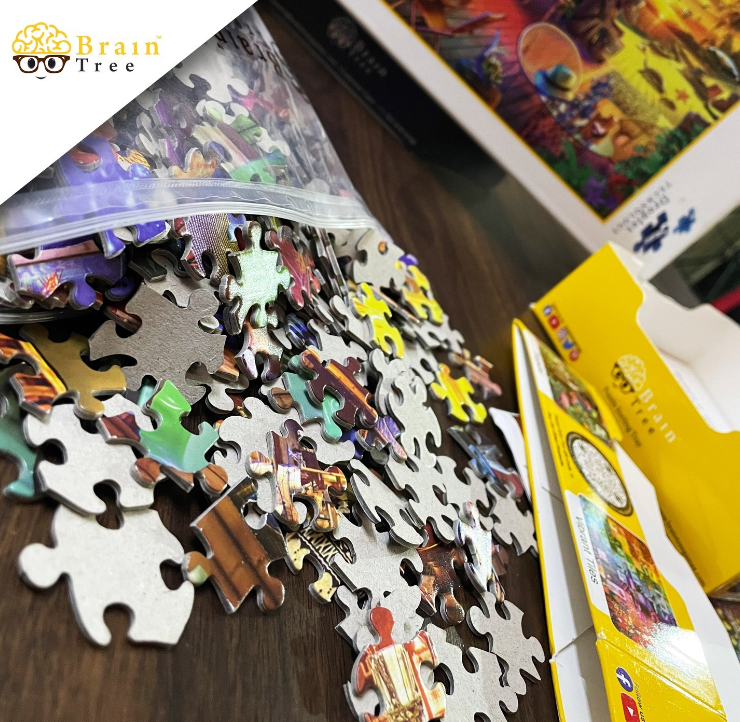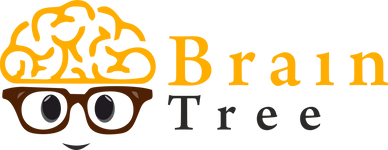
Tests to Measure Ability in Solving Jigsaw Puzzle
Tests to Measure Ability in Solving Jigsaw Puzzle
Introduction:
Jigsaw puzzles are a popular activity for people of all ages. They offer a range of benefits, from improving cognitive function to reducing stress and anxiety. For puzzle enthusiasts, it's important to know your level of skill in puzzle-solving, and how to measure it. In this blog, we will discuss the tests that can be used to measure your ability in solving jigsaw puzzles in detail.
Measuring Ability in Solving Jigsaw Puzzle:
- Time Test:
The time test is the most common way to measure your ability to solve a jigsaw puzzle. In this test, you time yourself completing the puzzle. The time test can be used to measure your speed and accuracy in solving puzzles. However, this test only measures how fast you can solve the puzzle, not your overall skill level.
It's important to note that the time test isn't always the best way to measure your puzzle-solving ability. Some people may take longer to solve a puzzle, but they may be more accurate and efficient in their puzzle-solving approach. Also, solving a puzzle too quickly can reduce the enjoyment and relaxation that comes from the puzzle-solving process.

- Piece Count Test:
The piece count test involves solving puzzles with varying numbers of pieces. It can help you determine your ability to solve puzzles with different levels of complexity. Starting with a lower piece count and gradually increasing the difficulty can help you determine your skill level and improve your puzzle-solving ability.
If you're a beginner, starting with a puzzle with a lower piece count can help you build confidence and improve your puzzle-solving skills. As you become more comfortable with the puzzle-solving process, you can gradually increase the piece count to challenge yourself and improve your skills.

- Difficulty Level Test:
The difficulty level test is used to determine your ability to solve puzzles at different levels of difficulty. Some puzzles have a high degree of complexity and require more time and effort to solve, while others are simpler and can be solved quickly. This test helps you understand your skill level and what puzzles are suitable for you.
For example, if you're a beginner, you may want to start with a puzzle with a lower difficulty level. This can help you build confidence and improve your puzzle-solving skills. As you become more comfortable with the puzzle-solving process, you can gradually increase the difficulty level to challenge yourself and improve your skills.

- Image Complexity Test:
The image complexity test measures your ability to solve puzzles with more intricate and detailed images. Some puzzles have a more straightforward design, while others have intricate details that make them more challenging. This test can help you understand how well you can solve puzzles with more complex images.
If you're a puzzle enthusiast who enjoys solving puzzles with more intricate and detailed images, you may want to take the image complexity test to determine your ability to solve puzzles with this type of design. This test can help you understand your skill level and what puzzles are suitable for you.
- Puzzle Type Test:
Different types of puzzles require different skills to solve. For example, some puzzles have unusual shapes, while others have interlocking pieces. This test helps you determine which type of puzzle is best suited to your puzzle-solving skills.
If you're a beginner, you may want to start with a puzzle with a more straightforward design to build confidence and improve your puzzle-solving skills. As you become more comfortable with the puzzle-solving process, you can gradually move on to more complex puzzle types to challenge yourself and improve your skills.
- Purdue Perceptual-Motor Survey
The Purdue Perceptual-Motor Survey is a standardized test that measures the perceptual and motor abilities of an individual. The test consists of 7 subtests, one of which is a jigsaw puzzle test. The jigsaw puzzle test measures an individual's ability to match pieces and shapes accurately and quickly. The Purdue Perceptual-Motor Survey is used by schools, hospitals, and research institutions to identify perceptual and motor skill deficits in individuals.
- The Adult Jigsaw Puzzle Test (AJPT)
The Adult Jigsaw Puzzle Test is a standardized test developed by the University of Derby in the UK. The test consists of 11 jigsaw puzzles of varying difficulty, and it is designed to measure an individual's cognitive abilities, including spatial awareness, visual perception, and problem-solving skills. The test is administered in a controlled environment, and it has been used in research studies to assess cognitive decline in older adults and the effects of cognitive training.
- The Human Puzzle Test (HPT)
The Human Puzzle Test is a unique test that was developed by a team of researchers at the University of Amsterdam in the Netherlands. The test is designed to measure an individual's ability to work together with others to solve a jigsaw puzzle. The test consists of a 500-piece puzzle, and it is administered to groups of four individuals who must work together to complete the puzzle. The HPT measures teamwork skills, communication skills, and problem-solving skills in individuals.
- The Jigsaw Puzzle Difficulty Scale (JPDS)
The Jigsaw Puzzle Difficulty Scale is a tool used by researchers to measure the difficulty level of a jigsaw puzzle. The scale is based on the number of pieces, the complexity of the design, and the presence of repetitive patterns. The JPDS is used in research studies to determine the effects of puzzle difficulty on cognitive function and the brain.
Brain Tree puzzles are designed to challenge individuals of all ages and skill levels. Our puzzles are made with high-quality materials and feature a range of designs, from simple to complex. Our puzzles are perfect for individuals who want to improve their cognitive function, spatial awareness, and problem-solving skills. Our puzzles are also great for families who want to spend quality time together and bond over a fun activity.
Whether you are a beginner or an experienced puzzler, Brain Tree puzzles have something for everyone. Our puzzles come in a range of sizes, from 100 pieces to 1000 pieces, and feature a variety of themes, including nature, animals, and landmarks. Our puzzles are also great for schools and educational institutions who want to incorporate puzzle-solving activities into their curriculum.
In conclusion, jigsaw puzzles are a fun and challenging activity that can provide numerous benefits for individuals of all ages. There are several standardized tests available that measure an individual's ability to solve jigsaw puzzles, and these tests can be used in research studies to assess cognitive function and the brain. Brain Tree puzzles are designed to challenge individuals and improve their cognitive function, spatial awareness, and problem-solving skills. Our puzzles are perfect for individuals, families, and educational institutions who want to incorporate puzzle-solving activities into their daily routine.
